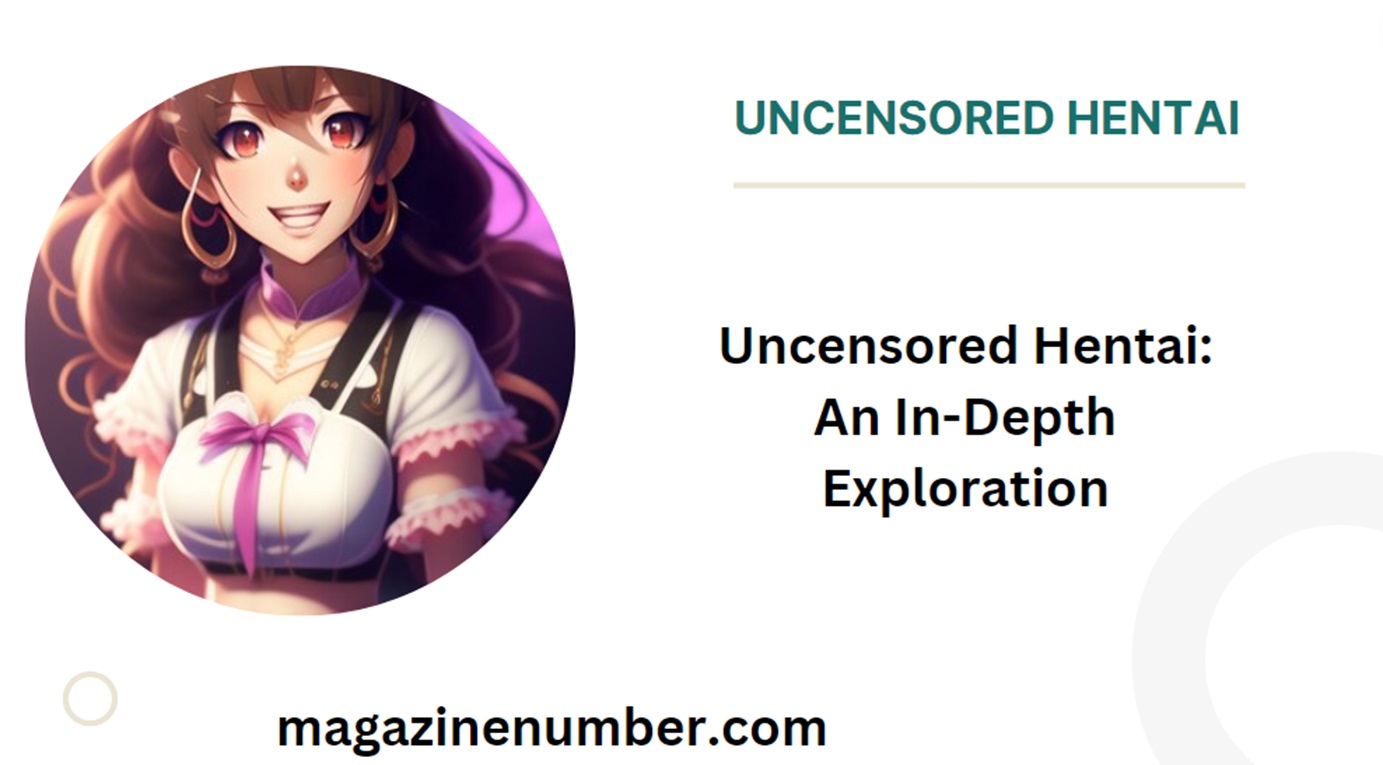Hentai, a form of Japanese animated pornography, has become a significant part of the global adult entertainment industry. Within this niche genre, uncensored hentai holds a particular allure for many enthusiasts. This article delves into the origins, cultural significance, legal aspects, and the psychological and social dimensions of uncensored hentai.
Table of Contents
Understanding Hentai: A Brief Overview
Origins and Evolution
Hentai, derived from a Japanese word meaning “perverse” or “weird,” refers to explicit or pornographic anime and manga. The origins of hentai can be traced back to traditional Japanese erotic art, known as “shunga,” which dates back to the Edo period (1603-1868). Shunga depicted explicit scenes and was widely popular among all classes of society.
With the advent of modern anime and manga in the 20th century, the depiction of erotic content evolved. Early works like “Cream Lemon” (1984) and “La Blue Girl” (1992) laid the foundation for what would become the hentai genre. These early works were characterized by their explicit content, imaginative scenarios, and artistic creativity.
Censorship and Its Implications
Japanese law has historically imposed strict censorship on explicit content. Article 175 of the Japanese Penal Code, enacted in 1907, prohibits the distribution of obscene materials. This law led to the practice of censoring genitalia in hentai, often using mosaics or bars to obscure explicit details.
Censorship has shaped the hentai industry in unique ways. Artists and creators have developed creative techniques to imply explicit content without directly showing it. However, this has also fueled a demand for uncensored versions, particularly outside Japan, where censorship laws differ.
The Allure of Uncensored Hentai
Visual and Artistic Appeal
One of the primary attractions of uncensored hentai is its visual and artistic appeal. Without the obstruction of censorship, the artwork can be appreciated in its entirety. Fans often argue that censorship detracts from the artistic value of hentai, as it disrupts the flow and visual coherence of the scenes.
Authenticity and Realism
Uncensored hentai is often perceived as more authentic and realistic. The removal of mosaics or bars allows for a more immersive experience, enhancing the viewer’s connection to the characters and storyline. This sense of realism can be particularly appealing in scenarios that aim to depict genuine human emotions and interactions.
Cultural and Psychological Factors
The appeal of uncensored hentai also stems from cultural and psychological factors. In cultures where explicit content is heavily censored or taboo, the availability of uncensored material can be highly enticing. It represents a form of rebellion against societal norms and restrictions.
Psychologically, the human brain is wired to seek out novelty and new experiences. Uncensored hentai, by offering a less restricted and more explicit form of entertainment, taps into this innate desire for novelty. It provides a unique and often more intense form of arousal compared to censored content.
Legal and Ethical Considerations
Legal Landscape
The legality of uncensored hentai varies significantly across different countries. In Japan, uncensored hentai is illegal to produce and distribute domestically due to Article 175. However, many Japanese studios produce uncensored versions for international markets where such restrictions do not apply.
In the United States and many European countries, the legality of uncensored hentai is generally less restrictive, provided it does not depict underage characters or non-consensual acts. However, the distribution of hentai can still be subject to obscenity laws, which vary widely by jurisdiction.
Ethical Concerns
The production and consumption of hentai, especially uncensored variants, raise several ethical concerns. Critics argue that hentai often portrays unrealistic and sometimes harmful sexual scenarios. There is a concern that exposure to such content might influence viewers’ perceptions of sexuality and relationships.
Moreover, the depiction of minors in some hentai works, even in fictional contexts, raises significant ethical and legal issues. Many countries have strict laws against the portrayal of minors in sexual contexts, reflecting a broader societal concern for the protection of children.
Industry and Regulation
The hentai industry operates in a complex legal and regulatory environment. In Japan, the production of hentai is subject to strict censorship, but loopholes and gray areas exist. For example, some studios produce uncensored content for international distribution, taking advantage of the less stringent laws in other countries.
Internationally, the distribution of uncensored hentai is often regulated by import and obscenity laws. Companies must navigate these regulations carefully to avoid legal repercussions. Despite these challenges, the demand for uncensored hentai remains strong, driving a robust market both legally and illicitly.
The Psychological and Social Dimensions
Impact on Viewers
The impact of consuming uncensored hentai on viewers varies widely. For some, it provides a form of sexual expression and exploration that they might not find elsewhere. It can serve as a safe outlet for fantasies and desires that might be considered taboo or unacceptable in real life.
However, there are also concerns about the potential negative effects. Excessive consumption of any form of pornography, including uncensored hentai, can lead to addiction and desensitization. It may also contribute to unrealistic expectations about sex and relationships, particularly among younger or less experienced viewers.
Social Stigma and Acceptance
Hentai, especially uncensored hentai, carries a significant social stigma in many cultures. It is often viewed as a perverse or deviant form of entertainment, leading to shame and secrecy among its consumers. This stigma can impact individuals’ mental health, leading to feelings of isolation and guilt.
Despite this, there is a growing movement towards greater acceptance and understanding of diverse sexual expressions, including hentai. Online communities and forums provide spaces for fans to connect, share, and discuss their interests without fear of judgment. This sense of community can be empowering, helping to reduce the stigma associated with hentai consumption.
Feminism and Hentai
The relationship between hentai and feminism is complex and often contentious. Critics argue that hentai, including uncensored variants, often portrays women in objectifying and degrading ways. They point to the prevalence of non-consensual scenarios and unrealistic body standards as evidence of inherent misogyny.
However, there is also a feminist perspective that sees hentai as a form of sexual empowerment and expression. Some argue that hentai provides a space for women to explore their sexuality freely, without the constraints of societal expectations. This perspective emphasizes the importance of agency and consent, advocating for more diverse and respectful representations within the genre.
The Future of Uncensored Hentai
Technological Advancements
Advancements in technology are likely to shape the future of uncensored hentai significantly. Virtual reality (VR) and augmented reality (AR) are already making inroads into the adult entertainment industry, offering more immersive and interactive experiences. These technologies have the potential to revolutionize how uncensored hentai is created and consumed, providing even more realistic and engaging content.
Changing Cultural Norms
Cultural attitudes towards pornography and sexual expression are evolving. As societies become more open and accepting of diverse sexualities, the stigma associated with hentai may diminish. This shift could lead to greater mainstream acceptance and availability of uncensored hentai.
Legal and Regulatory Trends
The legal landscape for hentai is also likely to change in the coming years. Efforts to harmonize international laws on obscenity and pornography could impact the production and distribution of uncensored hentai. Additionally, ongoing debates about the ethical implications of explicit content will continue to influence regulations and industry practices.
Industry Innovations
The hentai industry is known for its creativity and innovation. As demand for uncensored content grows, studios are likely to explore new themes, genres, and artistic styles. This could lead to a broader range of content that caters to diverse tastes and preferences, further expanding the appeal of uncensored hentai.
Conclusion
Uncensored hentai occupies a unique and often controversial space within the adult entertainment industry. Its allure lies in its visual and artistic appeal, authenticity, and the psychological thrill of exploring taboo content. However, it also raises significant legal and ethical questions, particularly regarding the depiction of minors and the potential impact on viewers.
As technology advances and cultural attitudes shift, the landscape for uncensored hentai is likely to evolve. Greater acceptance and understanding of diverse sexual expressions, coupled with innovations in the industry, could pave the way for a more inclusive and dynamic future for hentai. However, navigating the complex legal and ethical terrain will remain a critical challenge for creators, distributors, and consumers alike.



